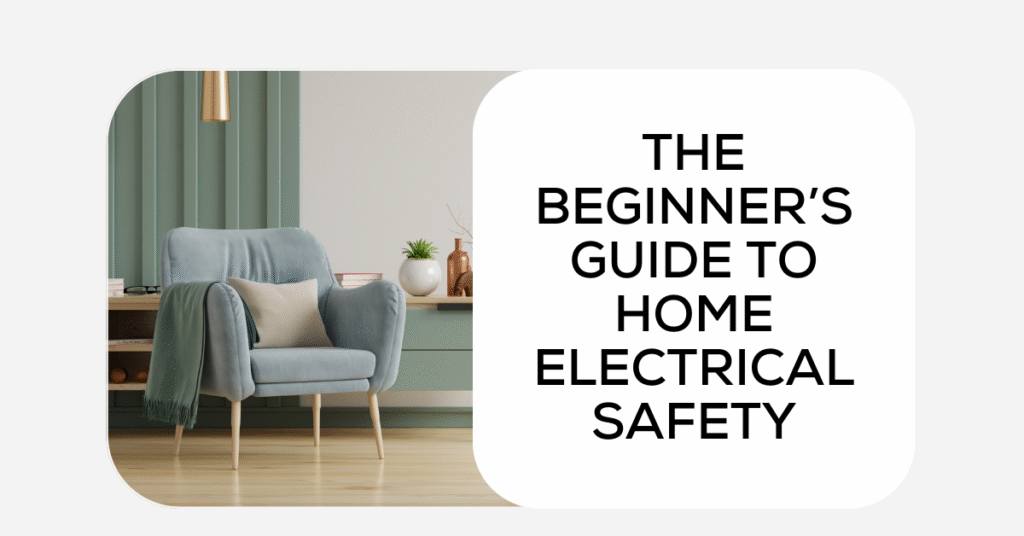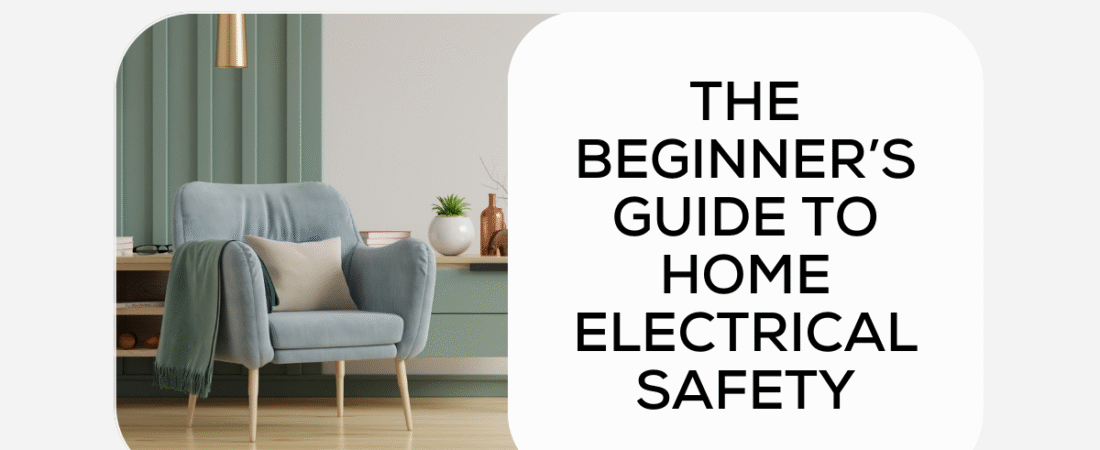If you’ve ever plugged in a phone charger and noticed sparks fly, you know that split second of panic. Your heart skips, you pull your hand back fast, and for a moment, you wonder if your entire house might go dark. That small scare is exactly why home electrical safety matters more than most people realize.
Electricity feels safe because it’s always there, powering our lives. But it’s also unforgiving when ignored. A loose wire, an overloaded outlet, or even a careless habit can lead to fires, shocks, or worse. I once had an extension cord heat up under a rug—I thought nothing of it until I smelled plastic burning. That smell never leaves your memory.
So let’s get honest. Most of us weren’t taught how to handle electricity at home. We just sort of learned by plugging stuff in and hoping for the best. But you don’t have to keep guessing. This beginner’s guide to home electrical safety will walk you through the basics, step by step.
Why Home Electrical Safety Is More Than Just “Common Sense”
The problem is, common sense isn’t always enough. Sure, we know not to stick a fork in a socket. But what about that power strip in the living room with eight things plugged in? Or the phone charger that feels hot when you touch it? These aren’t as obvious, yet they’re risks too.
In fact, home electrical fires cause thousands of accidents every year. The numbers aren’t just statistics. They’re families losing homes, people losing lives. And often, the cause is something preventable.
What Makes Electrical Hazards So Sneaky
Electrical issues rarely show up with flashing warning signs. Instead, they creep in quietly:
- Outlets that feel warm after use.
- Lights that flicker for no reason.
- A breaker that keeps tripping.
- Extension cords that snake across the floor, waiting to overheat.
We brush these off because life is busy. But those little signs add up. And when they do, the results aren’t little at all.

The Beginner’s Solution: Safety Starts Small
Here’s the good news. Staying safe doesn’t mean rewiring your house or buying expensive gadgets. It’s about paying attention, making small adjustments, and knowing when to call a pro.
I like to think of it as a partnership. You don’t need to become an electrician overnight, but you can become the kind of homeowner who knows enough to avoid disasters.
Step 1: Respect Your Outlets
Outlets are like doors to electricity. Treat them well. Don’t jam in plugs that don’t fit. Don’t overload them with too many devices. And never run cords under rugs where heat gets trapped.
One of my friends once ran his space heater and toaster from the same power strip. It worked fine—until it didn’t. The breaker tripped, and luckily that was the worst of it. But it could’ve been a fire.
Step 2: Learn the Breaker Box Basics
Your breaker box is the boss of your house. It decides when to cut power if something’s wrong. Many people never touch it, but it’s worth learning.
Label each breaker so you know which room it controls. That way, if you need to turn off power to fix something (like changing a light switch), you won’t end up flicking them all in a panic.
And if a breaker keeps tripping? Don’t just reset it again and again. That’s your house telling you something’s off.
Step 3: Upgrade Where Needed
Old wiring can’t always keep up with modern life. That’s why sometimes the safest thing is calling an electrician for an upgrade. If your house is decades old, or if you’re seeing signs like constant flickering, burnt smells, or sparks, it’s time.
Think of it like insurance. You spend now to prevent much bigger losses later.
Step 4: Everyday Habits That Protect You
Here’s where it gets simple. These daily habits can make a world of difference:
- Unplug chargers when not in use (they waste energy and can overheat).
- Use surge protectors for expensive gadgets like TVs and laptops.
- Don’t ignore buzzing outlets or switches—they’re not supposed to buzz.
- Test smoke detectors regularly because fire and electricity often go hand in hand.
They’re small, but together, they build a safety net.
Quick Reference Table: Common Hazards and Fixes
| Hazard | What It Means | What To Do |
| Warm outlet or switch | Possible overload | Unplug and call an expert |
| Flickering lights | Loose wiring or overload | Check bulbs, then wiring |
| Breaker keeps tripping | Circuit overload | Reduce load or upgrade |
| Burning smell near outlet | Damaged wiring | Shut off power immediately |
When DIY Crosses the Line
I’ll be blunt. There’s a limit to what you should fix yourself. Replacing a switch? Sure. Installing a ceiling fan? Maybe, if you’re confident. Rewiring the kitchen? That’s a no.
Electricians exist for a reason. They know codes, they spot hidden problems, and they keep your house safe. Sometimes spending money is the real shortcut.
FAQs: The Beginner’s Guide to Home Electrical Safety
What’s the first rule of electrical safety at home?
Always turn off the power before touching anything electrical.
Is it safe to use extension cords long-term?
No. They’re for temporary use only. Over time, they can overheat and fail.
How do I know if my wiring is outdated?
Frequent breaker trips, dimming lights, or outlets that spark are signs.
Do I need surge protectors for everything?
Not everything, but use them for electronics like laptops, TVs, and gaming systems.
A Personal Story That Stuck With Me
Years ago, I visited my aunt’s apartment. She had this one outlet with a dark scorch mark around it. She shrugged it off, saying it still worked fine. A few weeks later, that same outlet started a fire while she was away. Luckily the neighbor noticed smoke and called for help. She was safe, but the apartment wasn’t.
That was the moment I realized ignoring “small signs” can cost everything.
Conclusion: The Beginner’s Guide to Home Electrical Safety
Home electrical safety isn’t about fear—it’s about respect. The truth is, electricity gives us comfort, light, and connection, but it also demands awareness. When you know how to handle outlets, breakers, and daily habits, you cut risks in half.
So start small. Unplug that charger, check your breaker, listen to your home. Because protecting your space is one of the best gifts you can give yourself.
If you’re in the UAE and want to protect your home beyond just safety, [compare car insurance quotes here]. Saving money and staying safe often go hand in hand.

